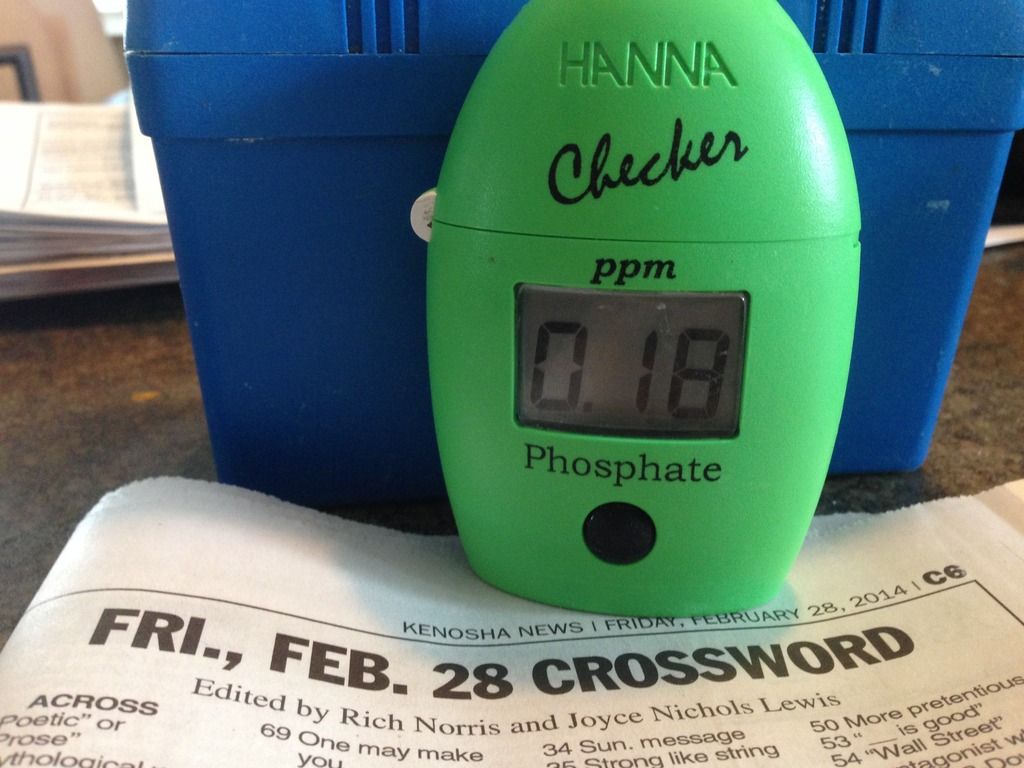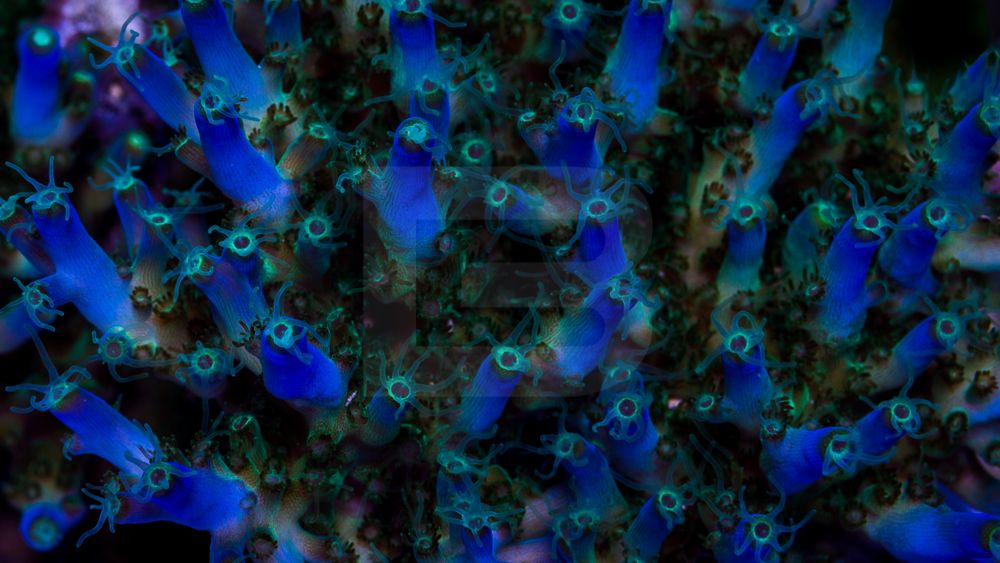Below is a short write up that I have sent to countless friends and customers of mine who are experiencing some kind of issue and feel that it’s related in some way to phosphate levels. I have decided not to have my faithful grammar pro “fix” it, as it's more of a raw outpouring than any sort of academic prose. I have no factual data to back up my sentiments, but can share just one pic taken in 2014, which was the last time I really measured phosphate with any amount of seriousness. Still super low by comparison to Richard Ross's much more eloquently written example, coincidently published the same month and year detailed here. The results serve only to reaffirm my initial endorsement of the entire idea. A lot of you have seen this already, and I hope it offered some relief from the clutches of the phosphate crazies. But for anyone else desperately trying to fix something that's not broken, I offer these ramblings
Messy, scattered and super unpolished. It’s my "blanket phosphate issues and concerns" response/rant.

I hate to start anything by saying "there was a time when” but...
I am not what I’d consider an “old school” reefer at all, but indeed about 10-15 years ago now around the early part of the 2000’s, and before, somehow those of us that could, and were able to, had thriving sps tanks. Yet, few of us had any idea about phosphate, respectively or saw it as something of little concern or consequence. We skimmed our tanks well, maintained proper alk and calcium levels, and may have employed more natural methods of nutrient reduction like a refugium and/or the ever controversial Deep sand bed. And still, with little or no regard at all for the presence of phosphate in our reefs, our sps grew and thrived. Blissfully, we were none the wiser. Or maybe it was just me, but regardless of wheather I was alone in my efforts, it wasn’t till the middle of the decade that I ever picked up a phosphate test kit.
This sentiment is reverberating a little more, and there’s plenty of skeptics that have always felt this way, but somewhere along the lines, perhaps coincidentally about the same time that methods to control it hit the market, I think we were led to believe that eliminating phosphate has some integral part in keeping sps successfully. And suddenly everyone began trying to rid there tanks of it. The primary mechanism was Granular Ferric Oxide. I don’t want to blame the GFO companies directly, but the phosphate fear spread like an epidemic and that ubiquitous .03 number was engrained in the minds of legions of reefers that now had a solution to a problem that didn’t exist.
Not surprisingly fast forward a few years and you see thread upon thread about people with faded looking sps and other odd low nutrient anomalies. And among the easy to blame, lighting, salt, params and stray voltage, nowhere on the list of usual suspects, in fact not even on the radar, were the low phosphate levels. And more troubling, the common regurgitation to solve these issues was to add more "stuff" that may or may not do the trick from wonder vitamins to amino acids. I'll venture to say that none of them did.
I realize I am oversimplifying this tremendously but its true. There’s a mass of newer hobbyist that don’t know any better because all they have read from day one, is about how they need to control phosphate by any means necessary!
Still, I have always been skeptical of the whole phosphate craze and like many other skeptics before me, feel that new comers who are led to believe that ultra low phos or nitrate for that matter will promote healthy sps are being miss guided. In my experiences the opposite is closer to the truth. I don’t have charts and graphs and bounds of research to back any of this up, just a sense of how things were, and where they are, and a keen interpretation of the dichotomy.
Does this apply to any and all tanks? Of course not. Some people will have success with ultra low phosphate levels and others systems will thrive with elevated phosphate. But I do wish people would put there Hanna checkers in the drawer and relax a little when they discover phosphate in their system. Consider a Fox face or even hermits if you are terrified by a little algae on your rocks. I don't like the look of a tank without a touch or green to be honest, and I really just consider it Rabbit food. Free Rabbit food at that!
So maybe more of a confusion on my part than a mistake on others part, but I think that there are way more important factors for thriving sps than practically ambiguous phosphate levels.

3 Comments:
Christopher Crigger says:
Great write up. I have had the issue of zero phosphate in my system since I started the tank 11 months ago. Corals are fading and not growing like they should. Thinking about adding some po4 to see if that will help. My last tank had no problems with po4 with a staggering.7.
Kyle Riedel says:
New Reefer here and I couldnt agree more! I’ve only been taught the opposite and my tank always seemed t to do better when I didn’t care about it.
Dave Ainsworth says:
Thanks for this little write up. I’ve been reefing since the early 200’s as well and I feel very little concern for my PO4 levels. I do check them from time to time, but I never worry about them. This makes me feel normal again. :)